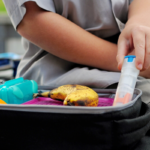First and foremost, blood donations are critical to saving lives. Every year, thousands of people in South Africa require blood transfusions due to various medical conditions or emergencies. Without donors, there simply wouldn’t be enough blood to meet the demand, and lives could be lost. By becoming a blood donor, you have the power to directly impact and even save someone’s life.
Secondly, donating blood is a relatively simple and easy process. It only takes about 30 minutes to an hour to complete the entire process, including the screening and donation itself. Plus, donating blood is completely safe, as all needles and equipment are sterile and single-use only. So, if you’re looking for a way to make a difference in your community that won’t take up too much time or energy, becoming a blood donor is a great option.
Another benefit of being a blood donor is the positive impact it can have on your own health. Donating blood can help reduce the risk of heart disease, stroke, and other health problems, as it helps to reduce excess iron in the blood. Additionally, every time you donate blood, you receive a mini check-up, including a blood pressure and hemoglobin level test, which can help you monitor your own health.
Lastly, being a blood donor is a great way to give back and show your support for your community. When you donate blood, you’re providing a vital resource that can help others in need. It’s a simple act of kindness that can have a huge impact on someone’s life. Plus, donating blood can be a great way to meet new people and connect with others who are also passionate about making a difference.
So, there you have it! These are just a few of the many reasons why being a blood donor is so important in South Africa. If you’re interested in becoming a donor, simply contact your nearest blood donation center or hospital to find out more about the process. Remember, every donation counts and can make a huge difference in someone’s life.
🩸Who can donate blood? Here’s an eligibility checklist for potential donors:
🩸 Why are South Africans not donating blood?
SAVE A LIFE & DONATE BLOOD.

Return to School Safely
As schools have started in January, it is important that CPR and First Aid training is in place to ensure a safe return. It is vital that the school staff receive full CPR and First Aid training and are confident and are competent and most importantly, are up-to-date with their

Are you looking to employ a Caregiver?
We provide a platform to assist employers and families with their search for qualified and professional Caregivers, (we do not employ Caregivers directly or provide home care directly.) We understand how important it is to find a suitable and qualified caregiver for your specific needs. This platform has been designed to

10 Summer Safety Tips
Holiday time is important, so that you and your family get to spend quality time together. Whether you are going away on holiday or staying at home, here are our 10 Summer Safety Tips to keeping the family safe. Make sure you have a fully stocked First Aid Kit Make

Sunburn in childhood increases the risk of developing skin cancer
Sunburn in childhood increases the risk of developing skin cancer If you help children to develop good sunscreen habits from an early age you are protecting them from skin problems later on in life. Make it part of your routine to apply sunscreen in the morning before you leave for

Home safety checklist
Home Safety is important so as to avoid accidents! Do you know how to make your home safe for your child? You may think of all the obvious dangers, but it is so important to check that your house is accident-proof for your child. For most of us, the word

First Aid Treatment for Burns
First Aid Treatment for burns, (any second degree or third degree burn requires medical attention ASAP!) Remove the person from the hazardous area. Cool down the burn site for at least 15-20 min under running water – this is the golden rule. Meat (flesh) continues to cook even when it is removed

Mental Health Day
We all have ‘mental health’, just as we all have ‘physical health’. And just like our physical health, we can all have times when our mental health is better than others. World Mental Health Day is a day of awareness that is observed on the 10th of October every year.

SHOP
Check out our online shop! Purchase our LATEST LAUNCH, our Online Baby and Child CPR and First Aid Course and start learning from your device at home and anywhere in the world! You can also purchase our popular Family First Aid Kits and we also offer Digital Gift Vouchers for any of

Family First Aid Kit
The Family First Aid Kit has been put together by Trauma and ICU experts to ensure your family outings always give you peace of mind.


